While freedom is important, there is a fine line between having the freedom to choose and being paralyzed in the face of too many options.
Such paradox of choice is fast emerging as exactly the type of dilemma facing the UK’s car buying public preparing to make their first purchase of an electric vehicle.
Five years ago, you could count the number of electric cars available in the UK market on the fingers of two hands; by the end of 2023 there will be up to an additional hundred models from which to choose, according to industry body, the Society of Motor Manufacturers and Traders.
While freedom is important, there is a fine line between having the freedom to choose and being paralyzed in the face of too many options.
Such paradox of choice is fast emerging as exactly the type of dilemma facing the UK’s car buying public preparing to make their first purchase of an electric vehicle.
Five years ago, you could count the number of electric cars available in the UK market on the fingers of two hands; by the end of 2023 there will be up to an additional hundred models from which to choose, according to industry body, the Society of Motor Manufacturers and Traders.
The British market potential for electric vehicles - despite the RHD and Brexit realities – will certainly remain highly attractive with Britain mandating car makers sell an increasing share of zero-emission vehicles up to the 2035 ban on sales of new petrol and diesel cars.
Paradox Choice of Brand
The Chinese EV industry has certainly come of age. China already dominates the global EV market. In 2022, 6.7 million units or 64% of global new energy vehicle production took place in China, which also accounted for 59% of the 10.52 million sales worldwide.
Who’s Who? The Chinese car brands that are taking the UK market by storm
Of the 7.65 million global EV sales last year, China accounted for over 5 million, meaning that almost two out of three EVs sold throughout the world were sold in China – the majority being domestically manufactured. The strength in that domestic market has now become a springboard for export aspiration.
The Shanghai auto show in April further demonstrated that China’s car industry had reached a critical turning point by showcasing homegrown EVs whose performance, sleek designs, and smart technologies were judged to rival anything on offer from Germany, the US and Japan.
Mark Turnbull, global head of consulting at Cap HPI, believes Chinese EV brands are deadly serious about the UK market, a firm sense of mission which could see them soon eclipsing the hegemony of western OEMs.
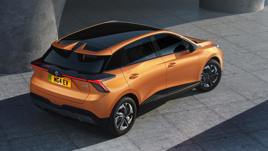
Cap HPI’s activity in residual value optimisation is already supporting China’s OEMs identify best residual values prior to the launch of new models. It's a forensic benchmarking exercise where new products coming to market are assessed on every aspect of specification from entry level through to premium against their nearest rival model.
The momentum is unstoppable according to Turnbull. “We’re in a privileged position to see the changes in this industry,” he says. “It’s as if we’re getting 100 years of change within the space of two years.”
Cap HPI has just recently taken eight brand new OEMs entering the EV marketplace on to its books – admittedly not all Chinese. “I don't think I can remember a time when we have seen that level of activity. In our current live product forecast there's over 55 passenger car brands at the moment so there is a lot of competition out there.”
The business is currently working with BYD and is forecasting that the leading Chinese carmaker - fuelled by its ambitious export aspirations - will achieve real volume in 2024 with not just cars but LCVs in the mix as well.
Challenge Differentiation
For Chinese manufacturers such as Hangzhou-headquartered Geely which snapped up marques with comforting brand heritages such as Lotus and Volvo while Shanghai-based Chinese state-owned SAIC has leaned in on MG’s industrial pedigree, the strategy has had remarkable success.
For those new brands which lack any cultural calling card, Cap HPI’s Turnbull, says the priority is to establish a positive brand image as swiftly as possible.
“We gave our feedback to BYD last year, which applies to any Chinese OEM which is that while you've got to enter the UK market as a technology company, you've still got to convince Mr And Mrs Smith from Wolverhampton to buy your car over somebody else's - and they're not going to know your brand.”
Dealers, he says, have a very important role here as they can lend credibility to a new brand. “If you're backed by an Arnold Clark, a Lookers or a Stratstone, it immediately gives your brand a shared association which can in turn give consumers a lot of confidence.”
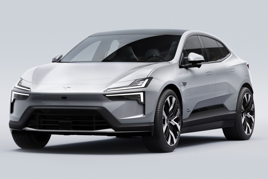
Their offering remains compelling, however. Much has been made in terms of the actual technology, the styling and the infotainment available from a Chinese EV. How much does that drive brand differentiation? “Chinese carmakers see their vehicles as technology plans,” says Turnbull, “and what you're seeing is well equipped products with a focus on technology at competitive prices.”
Sepi Arani, UK commercial director of online marketplace Carwow, agrees with Turnbull in so much as Chinese EV manufacturers now need to focus on establishing a strong brand presence and to foster the trust and loyalty of British consumers. He points out that this will all require time and dedication and whether they demonstrate the same patience that has yielded substantial rewards for their Korean competitors remains to be seen.
“Already 25% of consumers carwow surveyed said they would consider a Chinese brand but for those that said they wouldn't, they’re the ones in which we're super interested - to understand the 28% of people who say that a lack of familiarity with these new brands is the biggest blocker,” he says.
Challenge Adoption Phase
Arani notes that because the UK is at the second stage of adoption, the industry now requires a different approach to the last three years, one that moves on from the initial phase which was driven by the earliest private adopters and the fleet, rental and company car sector.
“Where EV brands traditionally have focussed on fleet deals and company car schemes,” he says, “retail requires a completely different strategy as it is far much more of a committed purchase for the private car buyer who cannot claim the significant 2% tax benefit-in-kind.”
Indeed, fleets and businesses made up 66.7% of new EV registrations in 2022, representing 74.7% of the volume gain, according to the SMMT.
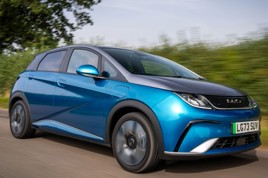
The risk of not adapting to the retail characteristics of this second stage of adoption as the sheer number of new entrants flood the UK market could prove the most significant challenge facing the next phase of EV uptake.
“There is a risk that consumers will ultimately take the path of least resistance and fall back to purchasing familiar brands as they simply can't differentiate between the new entrants,” says Arani. “So for brands, the biggest challenge is to build familiarity, build trust and to differentiate themselves.”
For those without brand pedigree, Owen Edwards, Grant Thornton’s head of downstream automotive, says Chinese EV manufacturers could well go down the multi-franchise dealership route. He had experience of that when working in Bahrain. “They had one big dealer and then they put three or four brands in it. And then after about five years, manufacturers could opt to go into a separate showroom so instead of having a mall of Chinese brands, you would see marques separating out to be able to build the brand further.”
Edwards says one of the best ways of getting brands out into the market is to put them on the streets. As such he believes there will a continuing role for not only fleet and rental but also scrappage schemes, citing the success of Kia which took advantage of the UK government scheme and which helped get its cars into the market and achieve more visibility.
This acute brand consciousness of the UK car buyer will also represent a key challenge, says Arani, who warns that Chinese brands must not consider their products simply as white goods and to seek as much differentiation as possible.
“We can see Chinese EV brands adapting their approach for the European market in Germany and the Netherlands first and then apply those learnings to the UK. I think one thing. In my view, the UK is a very sort of brand led market when it comes to consumers and the choices they make around their cars. The vast majority of consumers don't see cars simply as white goods. That's evident in the fact that we've been spoilt for choice in the UK where we have one of widest ranges of cars available. A car for most people is an extension of their personality. It's not simply a way to get it from A to B but a choice that reflect attitudes towards safety as well”.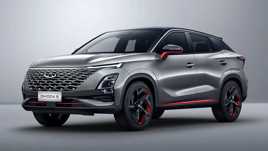
On a more general point Arani has an important point to make: the fact that every brand leads with range which only perpetuates range anxiety. “Realistically speaking,” he says, “the vast majority of consumers travel sub-30 miles on their average journey, and the vast majority of EVs offer 300-plus mile ranges.
“With many EV vehicles coming to the market with over 400 miles of range, range really shouldn't be a challenge anymore. It's going to be more about how people fit electric cars into their lifestyles.”
Challenge Business Model
Carwow’s research of the German and Dutch EV markets has shown that Chinese brands need to take stock of the unique market environment in which they operate. For the UK, that means newcomer brands need to acknowledge not only the huge range of consumer choice which already exists but also the structure of the dealership system upon which most of the earlier Chinese EV brands to arrive will build.
“Chinese brands,” says Arani, “must understand that it is not a one-size-fits-all approach within Europe. The way vehicles are sold, the way that retailers operate in the UK is inherently different to Germany which is more fragmented while in the UK, you have the top 20 large retailers that sell the vast majority of vehicles.”
Chinese car manufacturers may in time adopt the direct-to-consumer approach such as Geely’s Polestar although most are following the tried and tested franchise partner structure in an effort to build confidence around their products.
BYD, for one, has just announced that it expects to have a UK network of 27 franchised dealerships in the UK, rising to a final figure of around 100 by the end of 2024 with heavy weight national partners such as Arnold Clark, LSH Auto UK and Pendragon in time supplemented by smaller regional operators.
carwow’s Sepi Arani notes however that nothing is set in stone. “The one thing that Chinese brands definitely do have is the agility to change their approach whereas we're used to traditional brands having just the one business model”.
“Europe is not a one size fits all approach even now,” he says. “A good example of that is Chinese brand MG. which operates under a very successful franchise model in the UK while operating as an agency brand in Germany - two very close markets, two different approaches from day one.”
For their part, franchised dealers, faced as they are by the advent of the agency models with its risk of reduced profit margins and a loss of control over pricing and inventory management, the arrival of Chinese EV brands gives them even more reason to extend a warm welcome to the opportunities offered by partnering with the new arrivals.
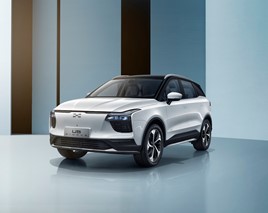
Industry veteran Tony Whitehorn, in the latest part of an executive interview with am-online, urges dealerships to not underestimate the level of innovation Chinese EV carmakers are bringing to the market not only in terms of the product but also the imaginative business models coming down the line by Chinese younger, arguably even more dynamic carmakers who will likely represent the second wave.
“A really good example is Lynk & Co which is a blank sheet of paper. It has now launched in seven countries across Europe and is direct to consumer. Fundamentally, you buy a Lynk & Co car on subscription so for 550 euros you can buy a really nice C segment vehicle with electric tail lift and all the bells and whistles and that covers not just the car but your insurance and maintenance as well.
“The only thing you have to put in it is the fuel - as this is currently a hybrid car, although they do have some electric cars coming down the line. It’s also a completely new model coming to market as it offers app-based car sharing.”
While the delay to the UK’s ICE 2030 deadlines may have dampened the sense of urgency for EV ownership, some argue that the agency model could actually undermine customer loyalty to established brands, rendering the car buyer more willing to jump ship to a lesser-known ones such as a Chinese EV. The UK dealership’s role in the EV revolution will need to similarly responsive to events if it is to continue to fulfil a retail need. Wei yi de chang liang jiushi bianhua - the only constant will be change.
Read Just how easily can Chinese car brands tempt buyers from the UK's establishment?
Login to continue reading
Or register with AM-online to keep up to date with the latest UK automotive retail industry news and insight.

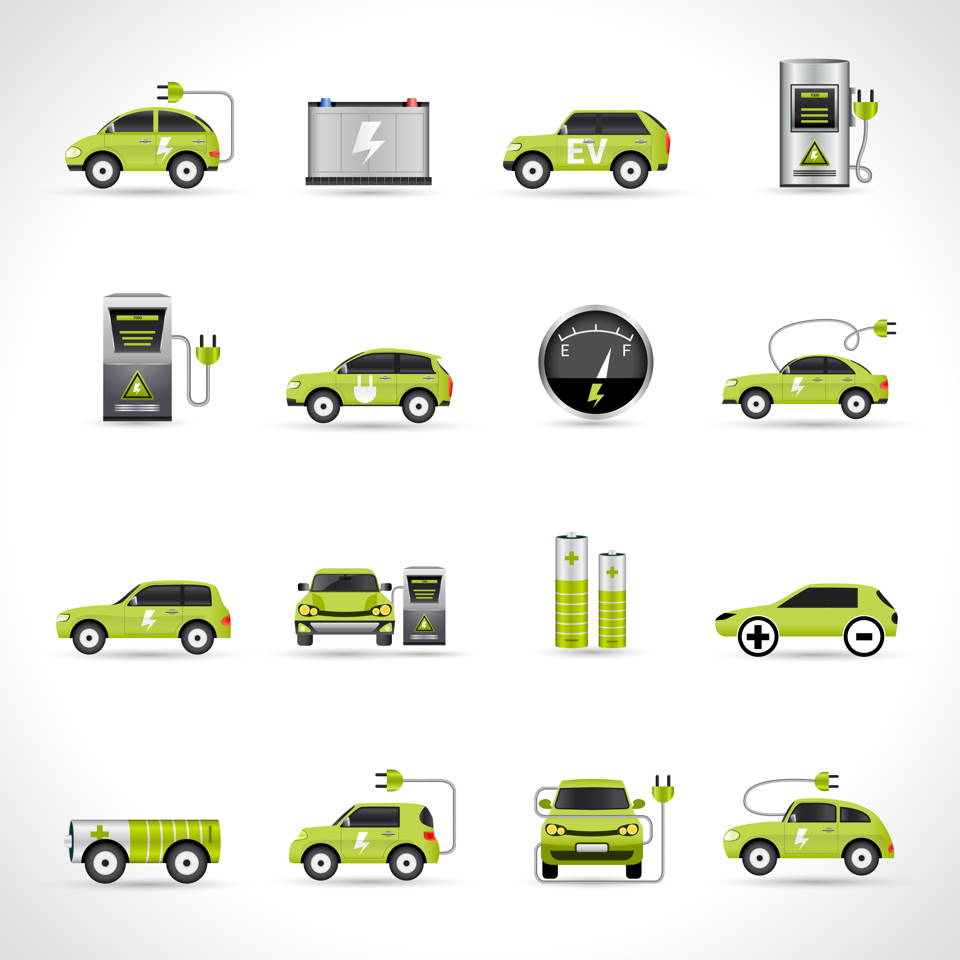


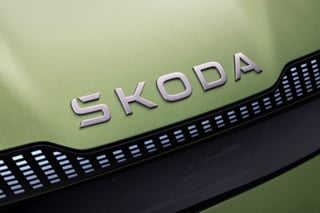

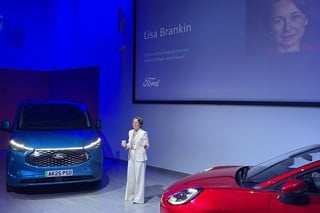











Login to comment
Comments
No comments have been made yet.